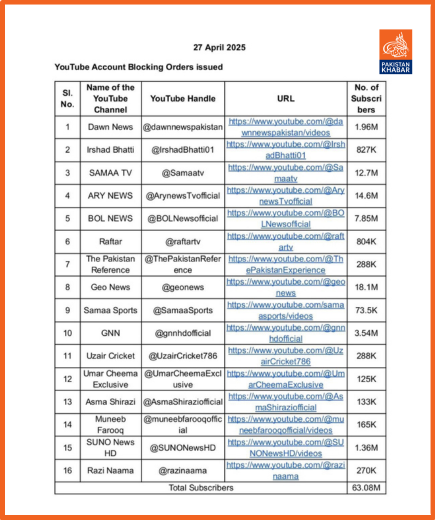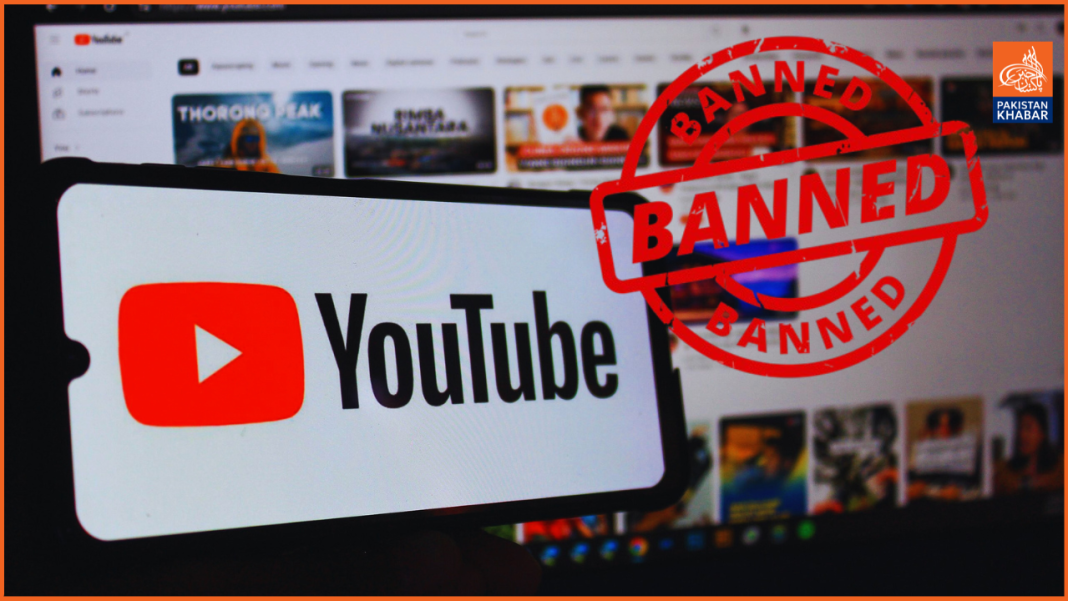In response to the deadly Pahalgam attack, which took the lives of 26 individuals including tourists, India’s Ministry of Information and Broadcasting announced the blocking of 16 Pakistani YouTube channels. Authorities accused these platforms of spreading “anti-India narratives” and promoting misinformation, especially concerning sensitive security issues.
Among the blocked platforms are several major Pakistani news outlets, including ARY News, Dawn News, Samaa TV, Bol News, Geo News, and GNN News. Additionally, individual YouTube channels operated by Pakistani journalists and celebrities like Irshad Bhatti, Asma Shirazi, Wusatullah Khan, and former cricket star Shoaib Akhtar have also been restricted.
India claims these channels were engaging in content that could provoke communal unrest, threaten public order, and undermine national security by disseminating false narratives about Indian armed forces and government policies, particularly related to Kashmir.
The ban comes shortly after an incident on April 22, when armed attackers ambushed a bus carrying tourists in the Pahalgam region of Indian-administered Kashmir. An obscure group known as The Resistance Front (TRF) claimed responsibility for the attack. Although India has not yet made public any concrete evidence linking the Pakistani state directly to the assault, New Delhi has traditionally blamed Islamabad for backing insurgent groups operating in the region.
Meanwhile, Pakistan’s government strongly denied any involvement in the incident. Prime Minister Shehbaz Sharif expressed strong condemnation of the attack and urged for a comprehensive and impartial investigation to uncover the true perpetrators. Claiming responsibility without proof might lead to needless escalation of tensions between the two nuclear-armed neighbours, Islamabad stressed.
So far, there has been no formal reaction from Pakistani officials regarding the YouTube ban. However, several Pakistani content creators, including comedian Shehzad Ghias Shaikh, expressed frustration over the decision, arguing that India’s crackdown on voices—even those promoting dialogue or humor—reflects shrinking digital space for dissent and discussion.
This move follows a pattern of growing digital censorship between the two countries. The official X account of Pakistan continues to be restricted in India, indicating a decline in the flow of information between the two nations. The broader concern is that such bans not only suppress journalism but may also fuel misinformation by limiting credible reporting avenues.
This incident brings to light the precarious situation of relations between Pakistan and India, especially with regard to Kashmir, and it prompts fresh enquiries on press freedom, national security, and the function of digital platforms in international disputes.




